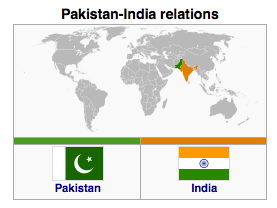Pakistan – India: Chopper Release Speaks Well Of Gen. Kayani
By B. Raman
On October 23, 2011, an Indian military helicopter with four military personnel on board strayed into Pakistani air space in the Skardu region of Gilgit-Baltistan due to bad weather.
According to official accounts of the Pakistani Army, the occupants of the helicopter consisted of one Lt. Col, two Majors and a junior commissioned officer. On detecting the crossing of the helicopter into Pakistani air space, planes of the Pakistani Air Force took off and made it land in the Skardu area.
After questioning the occupants of the copter regarding the circumstances under which it crossed over into Pakistani air space, they were allowed to take off and return to the Kargil area of India the same day within a few hours.

According to official accounts emanating from New Delhi, the Armies of the two countries sorted out the incident in a professional and cordial manner by using the hotline that exists between the Directors-General of Military Operations of the two countries.
Even though the incident was unintentional, the Pakistan Army could have played it up as having a sinister motive and detained the copter and its occupants ostensibly for long interrogation.
At a time when the Pakistani Army is under tremendous pressure from the US to mount operations against the sanctuaries of the Haqqani network, Gen. Ashfaq Pervez Kayani, its Chief of the Army Staff (COAS), could have exploited the incident to mount a PSYWAR against India in order to project as if Pakistan continued to face a military threat from India.
The Pakistan Army resisted that temptation, treated the incident in the low-key in which it deserved to be treated, consciously avoided dramatizing it and let the chopper and its occupants fly back to India within a few hours.
This speaks highly of Gen. Kayani as a military professional. His positive and cool reflexes as reflected during the incident need to be noted, acknowledged and hailed by India. The way the Pakistani military and political leadership resisted the temptation to exploit the incident for ulterior purposes needs to be highlighted and praised.
We do not hesitate to criticise what we see as the negative traits and reflexes of the Pakistan Army in matters relating to India. In equal measure, we should not hesitate to highlight and hail the positive traits and reflexes of the Pakistani military leadership. The manner in which the Pakistani military leadership handled the incident is worthy of high praise.
One is reminded that during the crisis in Indo-Pakistan relations after the terrorist attack on the Indian Parliament in December, 2001, Gen. Kayani was the Director-General of Military Operations in Rawalpindi.It was reported that the US was highly impressed by the cool manner in which he handled the crisis. He has shown a similar cool temperament on October 23.
Should the good vibrations generated by the Pakistani gesture remain an isolated act without follow-up? I don’t think so. This should be used as a starting point for setting up a more substantial military-military relationship between the armies of the two countries as a distrust-reducing measure. This is the time for us to consider inviting Gen. Kayani to visit India.
One should note too the commendable restraint shown by the media of the two countries in reporting on the incident. This augurs well for the future.
